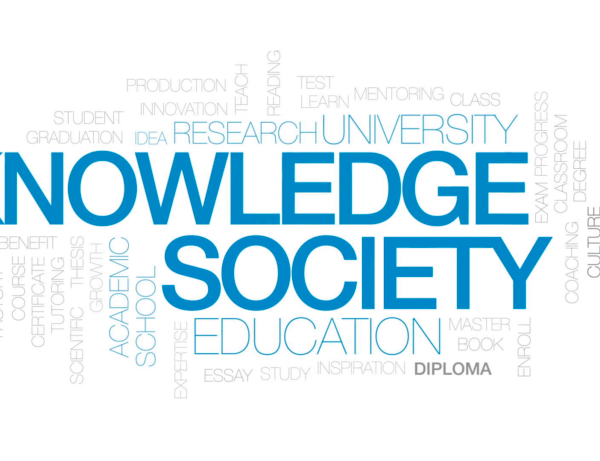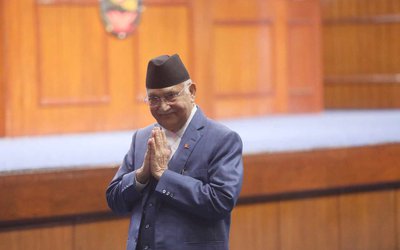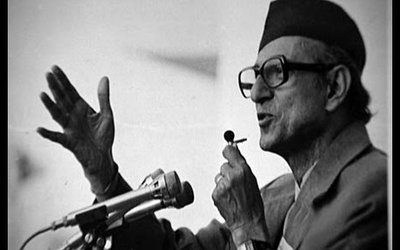
A very simple definition of the Knowledge Society is one that has democratic, cooperative, respectful and productive people, aware of their environment, where wealth and prosperity are based on the application of knowledge. Knowledge is understood as evaluated and selected information that empowers to act. In contrast to the concept of the information in society, which refers both to the furnishing and penetration of all areas of life with information and to the transformation of work and industrial production, knowledge-based learning focuses on the acquisition of knowledge.
We live in a non-knowledge society. The mass of data and information does not make us smarter, but more disoriented. The excess of information that we are exposed to has contributed very little to a broader understanding of the world. The many data and information do not make us wiser but rather helpless. They produce no knowledge, but disorientation. Cyberspace is nothing but a rumor mill for Nepalese people. It produces no insights, but a blur. This has fatal consequences in our lives. People don't really care about the concept of know-how, know-what, know-why, and know-who.
There is a strong link between democracy and the knowledgeable society. Modern democracy cannot operate without a knowledgeable society. Good democracy requires both the moral forces of society and education. In addition to being politically literate, the majority of society needs to have the will and will to participate in public life, to defend the public sphere. So democracy needs more than just information, not just knowledge based on the values and principles of democracy. If society is not educated enough, it can become enslaved to information and various forms of information manipulation.
Citizens also need considerable general knowledge to make judgments on many political issues. They should have relevant knowledge of statistics, economics and science and must have an even broader general education. Our school education system does not provide the necessary information to sustain democracy. At times when people need knowledge for political judgment and action, democratic values can be interpreted and evaluated differently. Knowledge and skills that are not based on human rights and values for democracy are literally worthless.
It is a great challenge for contemporary society. Collective intelligence is not equal to the sum of individual intelligence. Society is much smarter than the sum of individualities (likewise, mistakes can be magnified in a society.). The whole (collective knowledge) is more than the sum of the parts (individual knowledge).In a democratic regime, every public policy must meet two absolute conditions: quality and good policy for democracy itself. These two demands are often
considered conflicting. The demand to produce high-quality public policies is often used as an excuse to give full authority to experts or technocrats. The logic is simple: if you want policy as a solution to the problem then leave it to the experts. On the other hand, giving up policymaking entirely to a group of experts behind closed doors that are not known to the public reduces the quality of democracy. The essence of democracy is to give equal opportunity to all people to help determine the course of government. In this way, the dominance of experts does not injure the principle of equality of this opportunity
Education for democratic citizenship means professional development, dissemination, information, practical activities in which citizens acquire knowledge, skills, commit to values, develop their own attitudes and behaviors to practice and defend their democratic rights and responsibilities in society. Respecting diversity and active participation in democratic life with the aim of promoting and protecting democracy and the rule of law is a fundamental element of a knowledgeable society.
Education for democratic citizenship and human rights are closely interlinked and mutually supportive. They differ in focus and scope more than in goals and practice. Education for democratic citizenship focuses primarily on democratic rights and responsibilities and active participation in the civic, political, social, economic, legal and cultural spheres of society, while human rights education deals with a wider range of human rights and fundamental freedoms in every aspect of life. Knowledge is more than a means of apprehending reality. It is what allows us to configure the democratic space.
Ignorance is the worst of the evils of this world. It is so bad that, if suffered in excess, it ends up causing the rest of all the misfortunes in life. Our government has to work on boosting democracy literacy in Nepal. We need to aim for Democracy education programs to raise awareness, skills, and knowledge, primarily of young people in Nepal. In order to participate actively and constructively in democratic processes, we have to have a clear understanding of civic education (citizenship education) vs democratic education (political education) Quality democratic legitimacy can be achieved by mobilizing the widest possible knowledge.
In conclusion, a citizen with access to new technologies can become a factor of incalculable power of control in the face of their political representatives. Thus, knowledge is power and it should be used wisely.
Deepak Raj Joshi (The author is a lecturer and IT consultant. He also writes fiction under the name of Kapeed Joshi. He can be reached by email at info@dipakjoshi.com.np.)

Deepak Raj Joshi
(The author is a lecturer and IT consultant. He also writes fiction under the name of Kapeed Joshi. He can be reached by email at info@dipakjoshi.com.np.)
- Participatory Democracy
- Dec 07, 2023
- Rise Of Populism Boon Or A Bane
- Aug 13, 2023
- The Collapse Of Confidence And The Rise Of RSP
- May 17, 2023
- Lottocracy
- Apr 30, 2023
- Political Rot With Social Deterioration
- Jan 19, 2023















